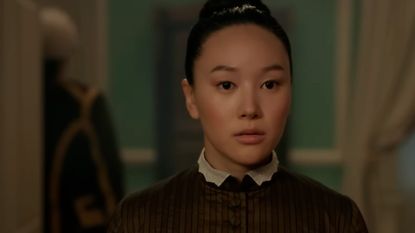Entertainment
The latest Entertainment breaking news, comment, reviews and features from the experts at T3
-
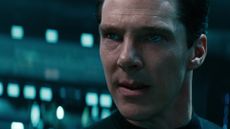
One broken Blu-ray just proved that physical media isn't overhyped – for me, anyway
Try not to downgrade!
By Max Freeman-Mills Published
-

One of my favourite Apple TV shows got a season 3 trailer – and Harrison Ford is back
Shrinking is a comfort blanket
By Max Freeman-Mills Published
-
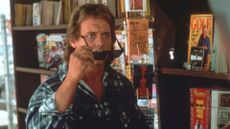
3 best streaming services you've probably never heard of but should – and one of them is free
If you're looking for something different to watch, try one of these three platforms you might not have used before
By Rik Henderson Published
-

Disney+ in January 2026: 5 new movies and shows to watch out for
A whole new year for Disney
By Max Freeman-Mills Published
-

Netflix's new 95%-rated movie might have passed you by – don't miss it
Train Dreams is a beautiful little thing
By Max Freeman-Mills Published
-

Apple TV's Pluribus and Breaking Bad have a mysterious connection
Albuquerque is the unspoken character in Gilligan’s work
By Mike Lowe Published
-

The 7 best all-new sci-fi shows of 2025 – watch on Netflix, Apple TV, Disney+
Nothing but brand new sci-fi shows to enjoy in 2026 – and no second seasons!
By Mike Lowe Last updated
-

Neftlix's huge movie trailer dropped over Christmas – I missed it, did you?
The Peaky Blinders movie is on its way
By Max Freeman-Mills Published
-
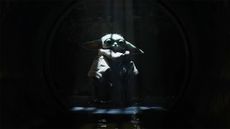
26 hottest movies to look out for in 2026 – on Netflix, Prime Video, Disney+ and more
They'll all be coming to your local cinema too
By Brian Comber Published
-

Amazon Prime Video in January 2026: 4 new additions to watch out for
A big month in the new year for Amazon Prime Video
By Max Freeman-Mills Published
-
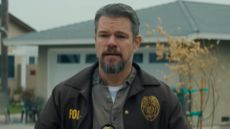
Netflix in January 2026: 5 new shows and movies you can't miss
A new year means new content!
By Max Freeman-Mills Published
-

20 essential MCU movies and shows you need to stream on Disney+
The Marvel Cinematic Universe is making a comeback, and here are the shows and films you need to catch up on
By Brian Comber Published
-

25 best TV shows of 2025 – on Apple TV, Netflix, Amazon, Disney+ and Now
The last 12 months have been great for TV shows, here are our favourites across the streaming services
By Brian Comber Published
-

Forget Pluribus – new Apple TV teaser shows it's doubling down on enigmatic shows
Widow's Bay is barely glimpsed
By Max Freeman-Mills Published
-

Prime Video's mahoosive show gets a tantalising trailer ahead of 2026 return
The Night Manager checks in soon
By Max Freeman-Mills Published
-
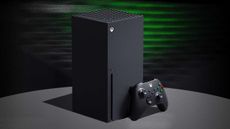
Know someone with an Xbox Series X or S? These are the Christmas gift ideas you need
Help them level up their gaming
By Max Freeman-Mills Published
-

What should you watch this Christmas? Free festive TV and streaming highlights for the UK
Here are some of the best things you can catch without a subscription
By Max Freeman-Mills Published
-

I completely missed this 2023 Disney+ show, but now it's getting a new season
The Artful Dodger merits a look
By Max Freeman-Mills Published
-

ChatGPT can now build you a playlist in Apple Music
Your playlist can now harness the power of AI
By Sam Cross Published
-

The enormous Netflix show you might have forgotten about just got a crazy S2 teaser
Forget Stranger Things, it's Avatar time next year
By Max Freeman-Mills Published
-

YouTube snags a streaming exclusive that could change the movie industry forever
The home of homemade claims the biggest industry scalp
By Chris Hall Published
-

Disney+, Apple TV and Prime Video beware – HBO Max's European rollout is surprisingly soon
One of the biggest streaming services in the US will finally arrive in Europe in January
By Rik Henderson Published
-

3 best 2025 Lego sets that should be on everyone’s Christmas list
When the mince pies are away, the bricks come out
By Matt Tate Published
-

Netflix's new mystery series has one of my favourite actors – I'm already sold
His & Hers looks juicy
By Max Freeman-Mills Published
-

I went to a titanic cinema screen in New York, and it confirmed something big about streaming
There's no replacing a storey-high Imax screen at home
By Max Freeman-Mills Published
-

Apple TV's most-watched show ever is also the best sci-fi I've seen this year
Pluribus is proving extremely popular
By Mike Lowe Published
-

Apple TV gets an Android-only feature that'll have iPhone owners seething
This will make it so much easier for Android users to watch Apple TV
By Chris Hall Published
-
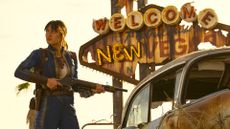
Sci-fi fans get an early surprise – Amazon brings Fallout Season Two forward to TODAY
The most eagerly-awaited sci-fi series in streaming history arrives early
By Rik Henderson Published
-

Got a Switch 2 or know someone with one? These accessories would make great Christmas gifts
A good accessory can change everything
By Max Freeman-Mills Published
